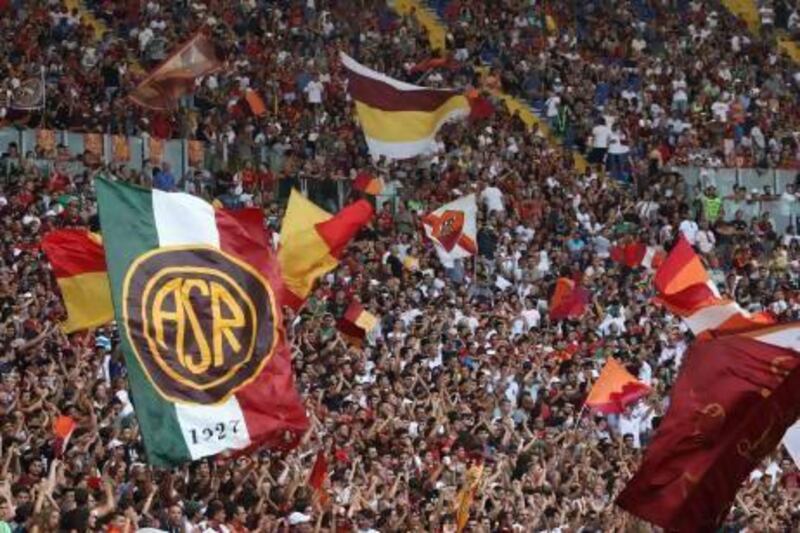The new Serie A season has much to savour, and intrigue. The good news is some individuals expecting to witness its opening weekend first-hand will not be allowed to.
Pending an appeal, the Curva Nord at Rome's Stadio Olimpico will be closed for Lazio's match against Udinese. That is because of the disturbing chants from that section during Lazio's 4-0 Supercoppa loss to Juventus on Sunday, when racist insults were aimed at Juve's black players, Paul Pogba, Kwadwo Asamoah and Angelo Ogbonna, the last of whom is an Italy international.
The ban on Lazio spectators follows several penalties imposed against that club last season by Uefa because of abusive and racist behaviour.
It is also consistent with the Italian authorities' more aggressive efforts to eliminate a nagging perception that they had turned a blind eye. But within the Italian federation, there are concerns that their lower tolerance of racism means empty sections of stadiums will become regular features.
The abusers, indignant and anti-authoritarian, are persistent. A body of the fans who do not shout racist insults also believe uniform bans unfairly punish the many for the sins of the few.
What is the alternative? To abandon matches? There is a reluctance among referees and match delegates to take that step, though the debate has become more concentrated since Kevin Prince Boateng of AC Milan walked off the field, followed by his teammates, after he suffered sustained abuse last season in a friendly.
Kevin Constant, his Milan colleague and a Guinea international, did the same this summer, again in a friendly.
If the precedents of the last eight months are a barometer, colleague Mario Balotelli must anticipate extended spells of jeering from opposing fans. Since he joined Milan in January, some of what Balotelli has heard has been plainly racist.
Balotelli, for the first time in his career, begins a Serie A season as the highest-profile player in the league. It is a World Cup season, which logically ends with Balotelli, the most talented Italian of his generation, spearheading the national team's efforts in Brazil.
It is also a season in which, for the first time, a mixed-race Italian, the former Azzurri midfielder Fabio Liverani, begins as the head coach of a top-flight club, Genoa. If Italian football is "institutionally racist", a phrase sometimes uttered, Balotelli and Liverani would not be working among its elite.
But over the next 10 months, Italian football's institutions must establish they will not baulk at tackling its most distasteful, corrosive disease.






